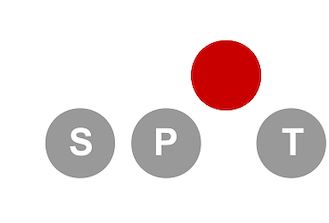1st International Workshop on
Deep Learning in Pervasive Computing (PerDL 2021)
part of
IEEE International Conference on Pervasive Computing (PerCom)
March 22-26, Kassel (Germany)
Call for Papers
The most recent advances in artificial intelligence, as concerns both
software and hardware, are fostering a multitude of smart devices
capable to recognize and to react to music, images, as well as to
other “stimuli”. These autonomous things, from robots to cameras to
healthcare devices, could exploit recent advances in Internet of
Things and resort to pervasive and distributed computing techniques in
order to avoid constant connection to the Cloud.
With artificial intelligence embedded in a great variety of
communicating devices and machines, we are reaching the so called
pervasive intelligence scenario, wherein machine and devices can
communicate with each other independently of any human being. The
proper integration of deep learning into these smart devices could
boost definitively this trend into a common reality.
On one hand, local chips for deep learning may benefit Internet
connectivity as well as proper and efficient pervasive and distributed
computing techniques, in order to increase their local
performance. This can be achieved by exploiting the well-known edge
and fog computing paradigms, which do not suffer from the latency
issues typical of traditional Cloud-based analyses. This is especially
true because deep learning requires great computational power, which
could be properly distributed and parallelized, and a great amount of
data, which could also be available in the form of fast streams of
data managed pervasively by a multitude of devices. On the other hand,
deep learning techniques could help to improve the performance of both
parallel and distributed computing techniques themselves, by finding
out opportune strategies and mechanisms to efficiently distributed
workload and tasks across different connected smart nodes.
The PerDL workshop aims to bring together practitioners and
researchers working on pervasive computing and on deep learning, by
soliciting contributions on, but not limiting to, the following
topics:
– Advances in pervasive and distributed deep learning techniques and
algorithms;
– Theories, models and novel algorithms for rendering deep learning
suitable to pervasive and distributed computing;
– Novel applications of deep learning techniques in the context of
pervasive and distributed computing;
– Technological innovations making possible the integration of deep
learning and pervasive computing;
– Fog and edge computing techniques for deep learning;
– Researches to make the computational complexity of deep learning
methods suitable for distributed devices;
– Studies to efficiently distribute and retrieve great amounts of data
useful for deep learning algorithms;
– Deep learning techniques to improve the performance of pervasive and
parallel computations.
The submitted papers may regard analytical, empirical, technological,
or methodological themes, as well as a combination of these. The
impact and influence of the contributions should be demonstrated in
the context of both pervasive computing and deep learning. Papers
applying known techniques from other fields are encouraged, provided
that the main topics of the workshop are properly addressed.
General Co-Chair and Program Chairs
Dr. Riccardo Pecori (University of Sannio, Italy)
Dr. Marta Cimitile (Unitelma Sapienza University, Italy)
Prof. Lerina Aversano (University of Sannio, Italy)
Important dates
Submission deadline of full papers: November 9th, 2020
Notification of acceptance: January 5th, 2021
Camera Ready: February 5th, 2021 (FIRM)
Submission Information
Paper submission must be done, as for the main conference, via
EDAS. If you do not have an EDAS account, please, register first (it’s
free) via the following link:
https://www.google.com/url?q=https%3A%2F%2Fedas.info%2FnewPerson.php%3Fnoauth%3D1&sa=D&sntz=1&usg=AFQjCNFNMoE3XMIB_A6KGHQ6FfqwYQrqSQ
The direct submission link for PerDL 2021 is:
https://perdl2021.edas.info/N27749
Special note:
PerCom 2021 and its workshops will follow a double-blind review
process. As a result, authors must make a good faith effort to
anonymize their submissions.
